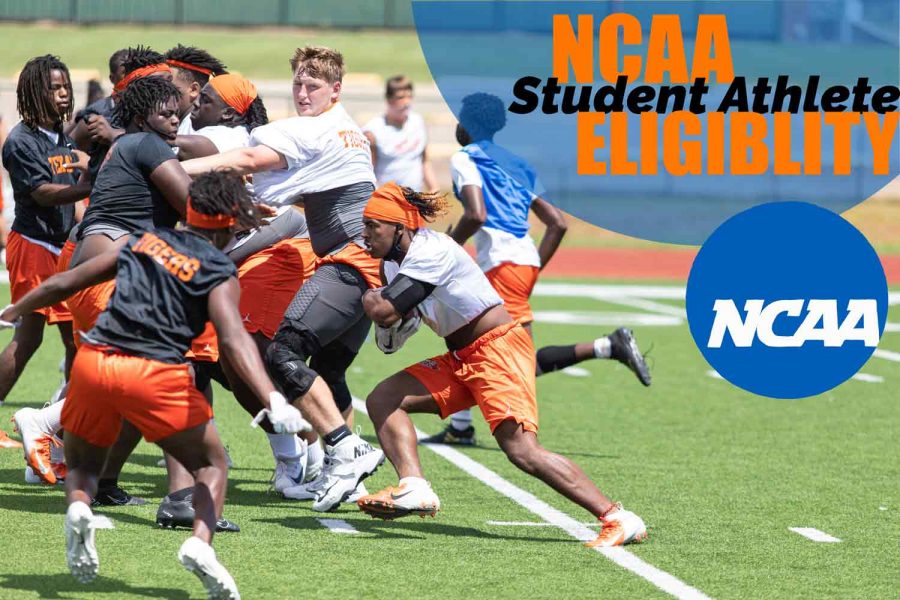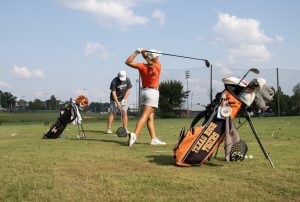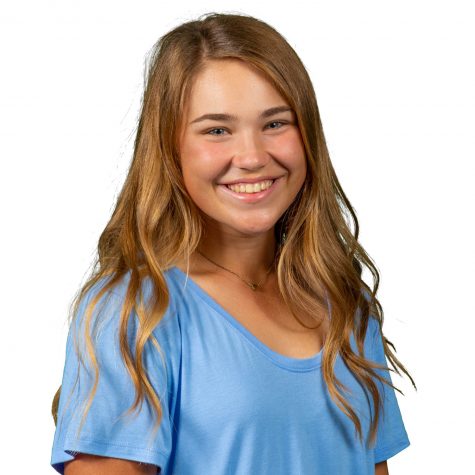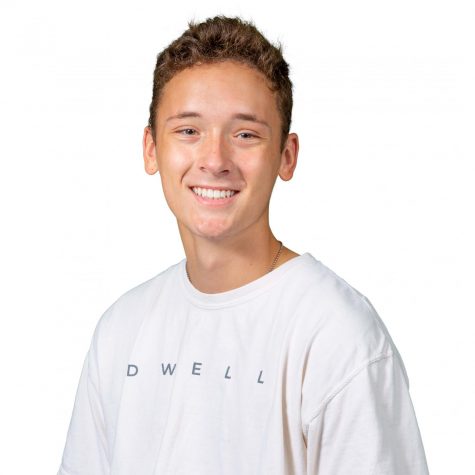Recruitment standstill
New NCAA rules affect high school athletes
Photo by Caden Rainwater
The effects of COVID-19 can be seen throughout the country with UIL canceling spring seasons and the NCAA imposing a new set of rules for the safety of athletes and coaches. In mid-March, the Board of Governors called for a recruiting “dead period.”
October 14, 2020
The NCAA has been regulating college athletics since 1906. They create and enforce rules for intercollegiate sports, manage rules for recruiting, and play a primary role in getting high school athletes to the collegiate level. Although they update their rules constantly, the COVID-19 pandemic brought about several new and sudden changes to what recruiting looks like. Some changes, like dead periods and waived eligibility, are causing significant problems for high school athletes.
The effects of COVID-19 can be seen throughout the country with UIL canceling spring seasons and the NCAA imposing a new set of rules for the safety of athletes and coaches. In mid-March, the Board of Governors called for a recruiting “dead period.”
“Since the dead period, I am not allowed to talk to any coaches in person and I am not allowed to attend any official visits,” senior kicker Oscar Hernandez said. “[This new rule] has canceled a lot of camps that I was supposed to go to to help me get my recruiting process going.”
The Division II dead period ended in September of 2020, but the Division one recruiting dead period has just been extended to Jan. 1, 2021. Hernandez is among many athletes of the 2021 graduating class who are struggling to figure out what is next for their athletic career due to the changes in the rules.
“NCAA time schedules changed when dead periods are, drastically changing the landscape of what college recruiting looks like right now,” athletic director and head football coach, Gerry Stanford said.
In addition to added dead periods, the NCAA decided to waive the 2019-2020 seasons for all athletes. Because they could not deprive athletes of their chance to perform, the NCAA made up for it by giving them an additional year of eligibility.
“The NCAA granting [2019-2020] athletes an extra year of eligibility could hurt me by not allowing me to start because any returning seniors could hold their position,” Hernandez said.
Unlike college sports, UIL does not have the ability to grant high-school student athletes an extra year of eligibility, and because of this, high school athletes have been affected tremendously. Spots that would be open for the class of 2021 are now closed because some college seniors have opted to stay back.
“It’s all about available spots,” Stanford said. “If their team stays full and they’re allotment of scholarships is gone because seniors stayed on longer, then you could have a more of an impact on the high school kid.”
However, the NCAA is not the only organization affecting potential collegiate athletes. The UIL canceled all spring sports for the 2019-2020 school year, depriving high school spring athletes of a season and practices. For football players, they missed out on a crucial part of their season.
“We missed spring ball,” Stanford said. “That was a big deal, and because we missed that, we would have got a second [scrimmage], but we missed the second scrimmage as well.”
Spring football is an important part of an athletes season because it allows the team to get extra practice and to work on specific parts of their game. UIL did not allow any type of practice after Texas High shut down to slow the spread of COVID-19.
“[Spring football] is to get the momentum back and to start working as a team again,” Hernandez said. “Missing it meant I didn’t get as many reps as I normally would.”
With regard to UIL and NCAA policies, times have changed. The young athletes are on the unfortunate end of this pandemic’s detrimental effects.
“COVID has shifted my entire view on my future, which I’ve trusted in for years. I’ve been given less opportunities, less offers and I possibly might not get to go to my dream college,” Hernandez said. “I just have to stay motivated and push through these uncertain times.”

















